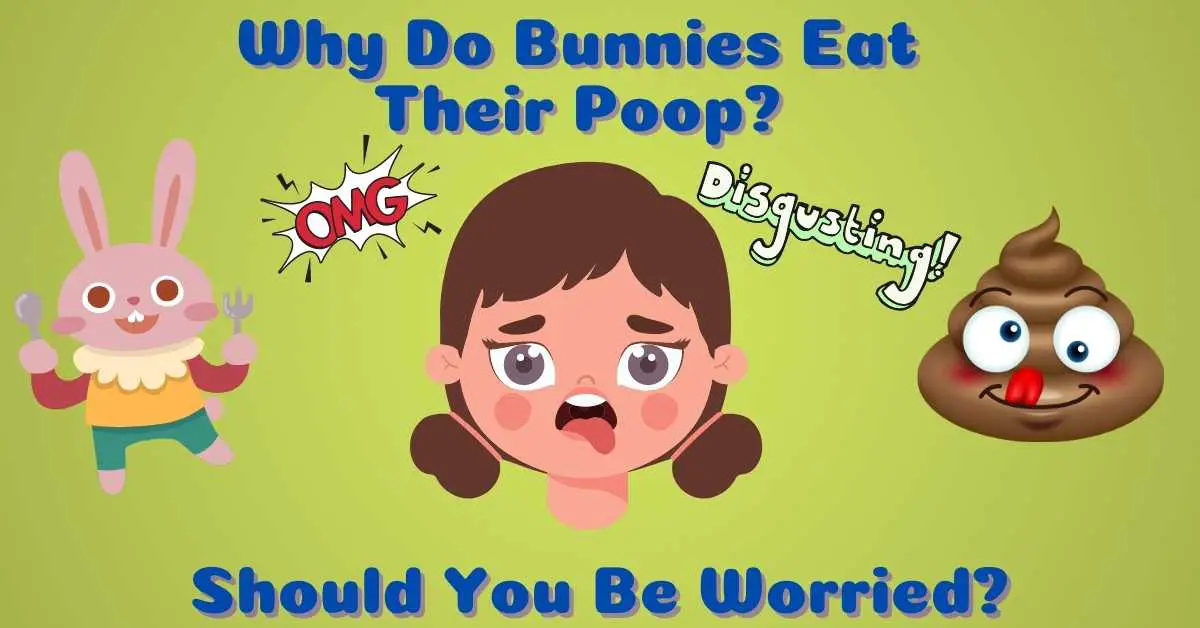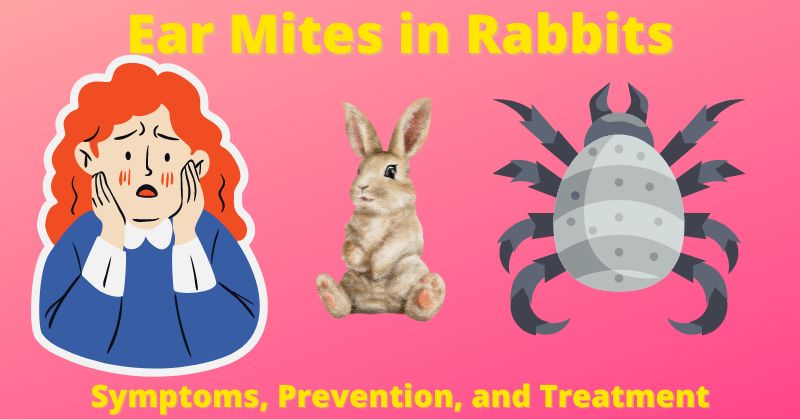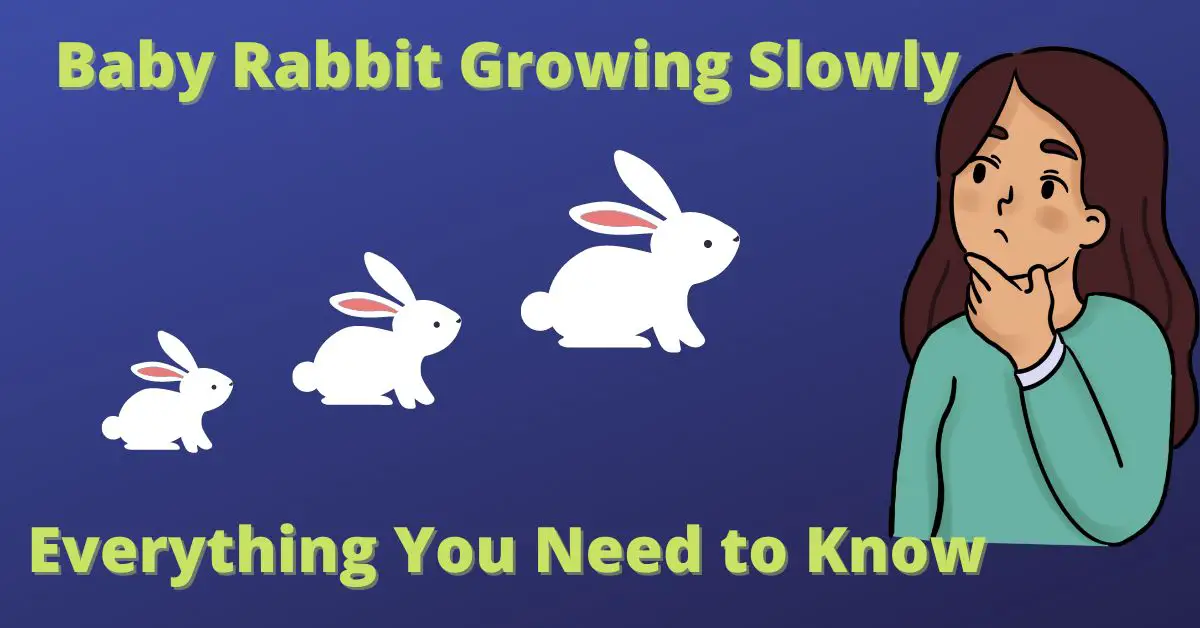Quick Answer: Why Do Bunnies Eat Their Poop? Should You Be Worried?
Cecotropes are a nutritious food for rabbits. These special feces contain more protein and vitamins than normal poops have, so by eating its cecotrope (and following an active lifestyle), your furry friend will stay healthy with all the important nutrients it needs!
Long description of this topic below
Introductions – Why Do Bunnies Eat Their Poop? Should You Be Worried?
Rabbits usually pretend they’re healthy even when they’re not.
Fortunately, there’s one sign that they can’t hide – their poop! Learning all about your bunny’s poop can help keep them happy and healthy. For starters, bunnies eat their poop.
However, there’s nothing to be worried about. Consuming poop is a normal behavior in these animals. It keeps them healthy. Below, I will discuss their poop-eating habits in detail.
Without any further ado, let’s learn why bunnies eat their poop.
Types Of Poop In Bunnies
Rabbits produce two different types of poop.
The first one is known as cecotropes and it’s the poop that bunnies consume, usually nibbling them right from the bottom and then giving them a light chew before swallowing.
This type of poop resembles sticky pellets all gathered together in grape-like shapes. Therefore, they’re way bigger than the regular pallet-poop you usually notice. It’s shiny and black.
The second type of poop is the usual single pellet poop that’s usually seen in runs and hutches. It’s light brown, drier than the previous type of poop, and way smaller.
Other types of bunny poop
In addition to the two main types of rabbit poop, I want to discuss other less common types of poop that can happen in certain situations because of different causes.
Poop with hair
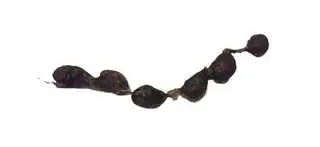
Sometimes, your rabbit’s droppings can be connected with hair. If your bunny has ingested too much fur because of hygiene or tearing out its fur, it will show in its poop.
The latter indicates a problem with their digestion. Or they have created trichobezoars (hairballs).
Pellets linked in pairs
If you notice pellets connected in pairs, don’t fret! This usually happens in older rabbits due to a slowing of intestinal transit. However, it can also be caused by physical suffering or psychological stress due to a disease. Take your bunny to the vet if you fear they’re suffering physically.
Diarrhea or bloody stools
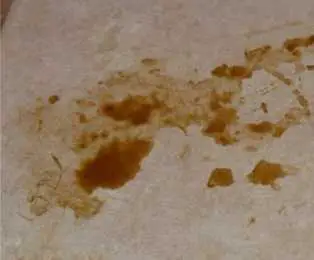
If you notice diarrhea or bloody stools, take your bunny to the vet immediately. This isn’t a normal thing for rabbits, so please take the situation seriously.
What Does Cecotrope Look Like?
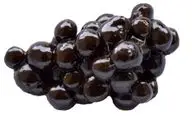
Cecotrope pellets aren’t as big as normal droppings. They’re about half the size, imperfectly round, and usually expelled in groups. They’re also stuck together and resemble raspberries or grapes.
They’re darker in color than normal droppings. Moreover, they have a softer and squishy texture coated with sticky mucus. Lastly, you can smell cecotropes. They have a stronger odor than standard droppings. And if you notice a lot of cecotropes laying around, your bunny is probably eating too many treats.
Meaning, they’re not eating enough hay. Hay offers long fiber that’s necessary for a bunny’s gut to work properly. The increased presence of cecotropes can also indicate that your rabbit isn’t feeling well.
Usually, this issue can be solved by simply feeding your rabbit with more hay and cutting back on treats. If in doubt, check with your vet because bunnies usually pretend to be well when they’re not.
Important note: As a bunny owner, you should never stop your bunny from consuming its cecotropes. They’re essential foodstuffs that play a vital role in their digestion.
Without eating their cecotropes, bunnies struggle to get important nutrients from their food. Now, let’s learn more about the appearance of their poop.
What Does Ordinary Rabbit Poop Look Like?
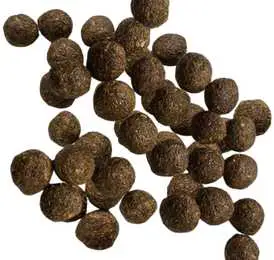
You can easily recognize normal droppings. They’re round, small, and individual balls and they can differ between chickpea and pea size.
A bunny’s poop mostly consists of hay. Therefore, the color is often light to medium brown. And if your bunny resides on fresh grass, it can even have a green tint.
Regular bunny droppings usually crumble between the fingers. They’re dry and if you break one, you will be able to see a hay-like consistency inside. Unlike the edible poop, this one doesn’t have any odor. Your bunny and other bunnies can easily smell their normal droppings. However, people can’t.
Is It OK For Bunnies To Eat Their Poop?
Absolutely! As I already established, it’s completely fine for rabbits to eat their poop. Have you heard of coprophagia? It’s the ingestion of poop!
I know that the thought of this behavior is unpleasant to most people. However, some animals including bunnies consume their own poop for a very good reason. Coprophagia is a natural and healthy behavior in other animals as well such as dogs. However, it’s usually discouraged by their owners.
Bunnies eliminate waste material regularly just like people and other animals. Fecal matter usually exits a bunny as a round dropping but will alter shape if proper water and fiber amounts aren’t consumed. It’s created during the day as a bunny is hopping around or hanging around its litter box.
However, these fecal pellets aren’t what bunnies consume. In addition to the standard fecal pellets that bunnies produce throughout the day, they also produce a special type of poop that’s also exerted during the night. It’s called cecotropes, also known as ‘night feces’. This is the poop bunnies eat.
Cecotropes aren’t the same as regular droppings. They’re stickier, softer, and often not even noticed by rabbit owners because bunnies usually consume them almost as they’re exiting the body.
Moreover, they’re only created at night, so bunnies will be noticed consuming them in the middle of the night or very early in the morning. The only time you will notice this type of poop on your bunny’s fur or in their area, is when your bunny isn’t feeling well. And thus, not consuming their poop.
Their edible poop delivers nutrients that every rabbit needs. They have more vitamins and protein than regular droppings have, thus by eating their cecotropes, a bunny is getting all of the key nutrients that it needs to stay happy and healthy.
Why Is My Rabbit Not Eating Cecotropes?
Bunnies should consume almost all of their edible poop as soon as they produce it. As I already stated, it provides essential nutrients that bunnies see as too precious to waste.
Studies in PloS One say that ingestion of cecotropes also helps to balance your bunny’s natural stomach flora. Cecotrophy reestablished great microorganisms into the cecum to help with hindgut fermentation. It’s normal not to notice a lot of cecotropes just sitting around in your bunny’s cage.
They usually eat their poop as soon as they produce it. Therefore, if you suddenly see more cecotropes than normal, contact the vet because this can be a cause for concern. Don’t panic because your bunny could be eating fewer cecotropes for many reasons like the following.
Obesity
Usually, most overweight bunnies have trouble getting to their cecotropes because of their weight.
Injury or arthritis
A certain injury or arthritis might be preventing your rabbit from eating its cecotropes, so consult a vet.
Dental issues
If your bunny is experiencing a mouth injury or tooth pain, it can be easier to eat other types of food.
Stress
If your bunny resides in a stressful environment, it may be paying less attention to cecotropes and more attention to finding a safe place.
Excess protein
If your bunny is receiving too much protein, it won’t feel the need to eat its cecotropes. Bunnies should consume only grass hay, small portions of selected vegetables and fruits, and a small number of pellets daily. Keep in mind that alfalfa hay isn’t suitable for bunnies because it’s rich in protein.
Why Is My Rabbit Eating Poop (Not Cecotropes)?

Coprophagy isn’t something unusual in bunnies. It’s completely healthy and normal behavior. However, bunnies should only consume cecotropes.
This means it’s not usual for bunnies to consume their dry poop that doesn’t provide any nutrition. All they contain is indigestible fiber without any water.
Therefore, if you’re certain that your bunny is consuming the pellet droppings, it’s time for a new diet. A bunny may consume its droppings if they don’t have access to enough fiber from other sources. Keep in mind that your rabbit might be eating their poop because of boredom, so provide some toys too!
Increase the amount of hay your bunny has access to. Further, never allow your bunny to run out of hay. And don’t worry about the consistent supply of hay because bunnies can never have too much of it. You can also give hay pellets to your bunny. They’re more appealing than hay as they’re more caloric.
However, pick a brand that doesn’t have any added extras such as colored pieces or corn. Furthermore, make sure that your bunny is consuming the proper amount of leafy greens. They should have a portion of veggies and fruits such as parsley, cilantro, and arugula twice the size of their head per day.
Summary
In short, bunnies eat their poop and that’s okay! Period. If your bunny isn’t consuming its cecotropes, then there’s a reason why. And unless it’s arthritis or obesity, consult your vet immediately.
Do you have any questions, remarks, suggestions, or health tips for bunnies? If so, drop a comment, and let’s keep the discussion going below! Also, share this article with other bunny enthusiasts!

